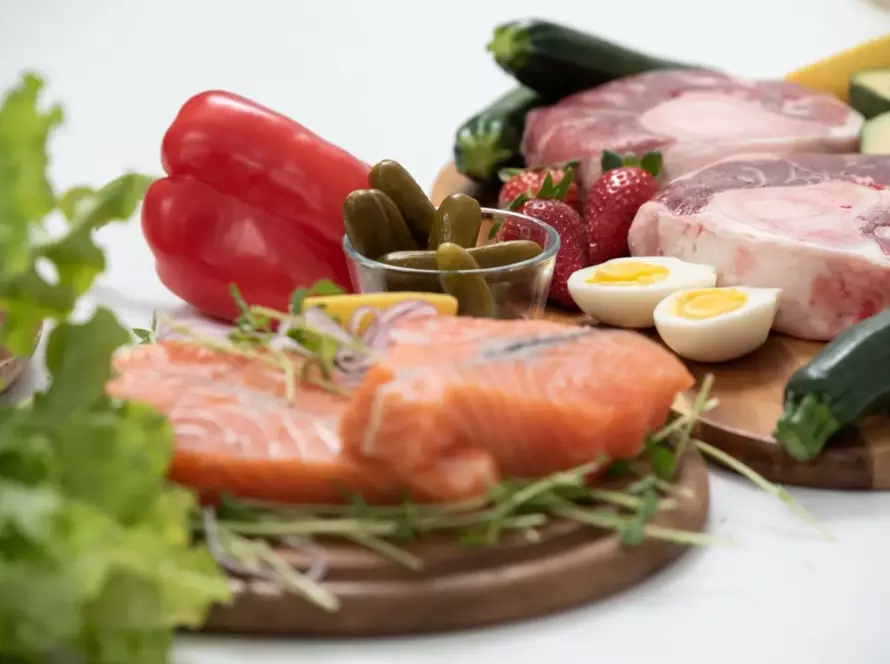This is the definitive guide on how to lose weight. No matter what your goals are for 2024. Make sure you read this weight loss guide and bookmark it today so that you can refer back to it during the year.
Summary of the 18 tips in this weight loss guide:
- Pick a low-carb or high-satiety diet
- Only eat when you are hungry
- Eat real food. Takeaways aren’t real food
- Eat ONLY when you are hungry
- Wisely track your journey towards success – it’s the only way to see how far you’ve come!
- Resilience and determination are essential when it comes to achieving your goals.
- Moderation is key when it comes to health and wellness – including fruit!
- NO Beer
- Step away from the non-caloric sweeteners and opt instead for a healthier alternative – your body will thank you!
- Take a moment to review the medications you may need.
- Sleep is the key to stress-free living!
- Let’s explore lighter but still delicious alternatives to dairy and nuts for our meals!
- Fuel your body with essential vitamins and minerals for optimal health.
- Give intermittent fasting a try for an energized and invigorated you!
- Whether you’re training for a marathon or just looking to stay fit. Exercise wisely and reap the many health benefits it brings!
- Tantalize your tastebuds and boost to higher ketone levels for a more nutritious day!
- Looking after your health is a top priority. What better way to do that than getting a check-up of those vital hormones?
- If you are looking for a way to kickstart your weight-loss journey, why not consider the potential benefits of medication? With careful monitoring and doctor consultation, there may be an option out there that can help give you that extra boost!
1. Pick a low-carb or high-satiety diet to help you lose weight
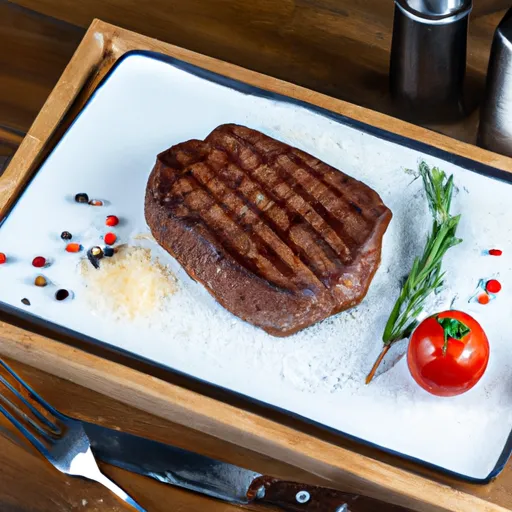
If you’re looking to slim down, why not start by saying goodbye to sugar and starch? It’s an old-fashioned concept – people have been cutting carbs in their diets for over a hundred years. But modern science has now revealed that this tried and tested approach is just as effective. It may even be better than all the other diet plans out there.
If you’ve ever tried to lose weight, I’m sure you can relate. The advice “just eat less” might be good in theory but trying it out is a completely different story! Hunger tends to get in the way of most diets.
We all know how difficult managing cravings and sticking with portion control can be. No wonder “yo-yo dieting” has become so common.
With so many diets out there, it can be hard to decide which is best for losing weight. But one, in particular, seems to have the upper hand – low-carb dieting!
Not only does this plan encourage you to eat less naturally, but its delicious meals also make slimming down a pleasure rather than a chore.
Bon Appetit!
Cutting Those Carbs
Cutting down on carbs can be just as effective at reducing calories – without counting them! This was demonstrated in 2012 when a study showed that those who had lost weight experienced far less reduction in their energy expenditure over 24 hours compared to people following a low-fat diet. That’s an impressive 300 fewer calorie difference – so ditch the calculator and get your carb fix!
Imagine an entire hour of exercise a day without having to lift a finger! That’s the astonishing potential according to one Harvard professor behind this new study. It would be like gifting yourself with the same calorie-burning benefits you’d get from moderate-intensity physical activity. How incredible is that?
Weight loss can give your metabolism an extra boost! A recent, intensive study confirmed that those who maintained their weight on a low-carb diet were burning 200 to nearly 500 more calories each day than people eating high or moderate carbs.
This means if you stick with it and keep the pounds off, you could be giving yourself long-term health benefits. These include increased metabolic efficiency – how inspiring is that?
Trying to trim some unwanted pounds without a constant feeling of hunger? For those looking for an alternative approach, consider eating higher-satiety foods.
Packed with protein and fibre, these flavourful meals can help you reach your wellness goals while satisfying cravings. Let me show you how tasty slimming down can be!
Eating to satiety can be the key to maintaining any type of diet, especially those that involve cutting carbs. So isn’t it just wonderful knowing that you don’t have to narrow down your food choices or sacrifice flavour? Let’s embrace all different types of diets to lose weight!
So what does it all mean?
Eating a low-carb diet can do wonders for your health and waistline. Not only does it help keep hunger at bay, but studies have shown that the lower carb count means more fat is burned whilst resting! Eating higher satiety foods within this framework ensures you shed those excess pounds without having to endure constant feelings of deprivation – perfect for living out keto or low-carb lifestyles.
2. Eat when you are hungry
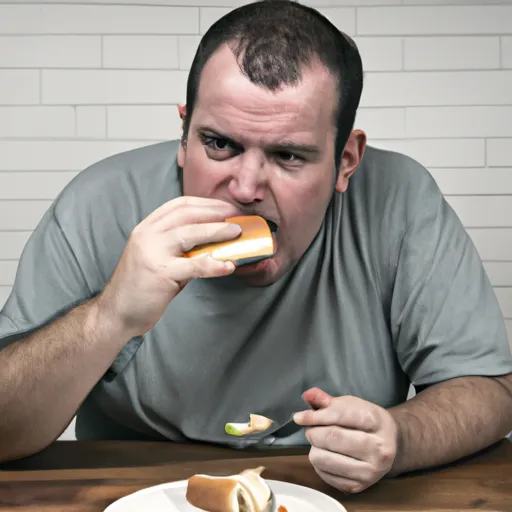
Nothing satisfies quite like a tasty meal enjoyed when you’re truly hungry. Make sure not to rush things – wait until your appetite has been roused and indulge in some delicious grub!
Craving something tasty but don’t want to break your low-carb diet? No problem! With the keto way of eating, you can trust your body’s natural signals for hunger and satisfaction.
We’re giving you permission to enjoy as many — or few — meals a day without guilt – so listen up foodies; it’s time to ditch those restrictive diets once & for all!.
Eating regularly is important for nourishing the body, however, if you’re looking to drop a few pounds then it’s worth considering curbing those snacks in between meals. Adding protein and fibrous vegetables can help keep hunger pangs at bay while still helping maintain good nutrition. Something much more satisfying than an unhealthy snack!
Food should be a source of joy in life and something to savour, not an obligation. Eating when you’re hungry is important – if that’s once or twice per day without snacking then go for it! Low-carb diets are also great for reducing hunger too, so why not experiment with upping the protein levels during meals? Deliciousness awaits!
If you’re looking to cut back on your food intake, protein is the way to go. Numerous studies have shown that increasing dietary protein content leads not only to greater satisfaction but also helps reduce unhealthy cravings for more food – making it both healthier and tastier! So if you want a diet which feels good too, look no further than incorporating generous portions of proteins into your meals.
3. Eat real food. Detest “low-carb labels”

It’s easy to be tempted by all the ‘low-carb’ products on offer. But don’t forget that a healthy weight loss diet should primarily centre around real food. So keep an eye out for clever marketing tricks and stick to your own delicious home cooking!
Prioritize what humans have been eating for thousands of years, e.g. meat, fish, vegetables, eggs, butter, olives, nuts etc.
This should be obvious, but creative marketers are doing all they can to fool you (and get your money). They will tell you that you can eat cookies, pasta, ice cream, and plenty of chocolate on a low-carb diet… As long as you buy their brand. They’re often full of carbohydrates. Don’t be fooled.
Looking to drop a few and feeling like you could do without all the carbs? Nix those special “low-carb” products – turns out, they’re still chock full of them!
Dabbling in a low-carb diet? Before you buy that loaf of so-called ‘low carb’ bread, make sure to check the ingredients. Grains are definitely not welcome here! Don’t be fooled by sneaky companies who try and sell it as an option.
Two simple rules to avoid being tricked into purchasing unhealthy “low carb” products:
- Forget the faux “low carb” temptations like cookies, bars, and chocolate. Life is too short to skimp on quality ingredients for a tasty treat so why not make it yourself? Bread, pasta and ice cream made from scratch ensure you know exactly what’s going in. This makes them all totally indulgent guilty-free pleasures!
- When you’re shopping, steer clear of products bearing the words ‘net carbs. They may be trying to trick you with false promises. Keep your eyes open and shop smart!
Eating fresh, glorious real food should be a top priority. Where possible, pick your products without needing to read through long lists of ingredients. Chances are you know the natural goodness when it’s right in front of you!
In 2019, a groundbreaking study revealed that processed foods are much more likely to make us overeat. In fact, those involved ate an average of 500 calories over their baseline diet!
Even when attempting to match the macro-nutrient levels between highly and less processed food groups. Clearly, there’s something about ultra-processed meals that just can’t be replicated without diving deeper into our pantries.
4. Eat ONLY when you are hungry

When it comes to achieving your weight goals, there’s nothing more important than knowing when and what to eat.
Eating low-carb or higher-satiety foods whenever you’re hungry is great for keeping off the pounds. Don’t forget that if you aren’t feeling peckish then you can simply wait until hunger strikes again!
Taking a mindful approach towards food will help speed up those all-important rewards on the scale.
Don’t let unnecessary snacking interfere with your health goals – it’s so important that we should take a moment to focus on it!
With low-carb diets becoming a popular way to maintain health and wellness, it’s important to be aware of the potential for unnecessary snacking.
Unhealthy choices can easily become our go-to if we aren’t paying attention! My advice? Be mindful when choosing snacks as you’d like on your journey. There are three common traps that may derail you without warning.
- Dairy products such as cream and cheeses can be incredibly indulgent, so it’s important to remember that a little goes a long way! Beware of noshing on cheese in front of the TV late at night when you’re not really hungry, or overindulging in heavy cream desserts even after you’ve had your fill. Instead, try sprinkling some savoury grated parmesan atop an Italian dish for dinner – deliciously satisfying yet light enough to enjoy without any guilt.
- Nuts. It’s all too tempting to keep on munching – and salted nuts are the most delicious, yet hardest nut of them all. So why not try this ‘science-approved’ tip: rather than bringing a bag full of these salty snacks right up to you in front of that Netflix show, stick with just one small bowl instead! Now there’ll be no more excuse for overindulgence!
- Low-carb baking. If you’re attempting to slim down, it’s worth remembering that succumbing to the temptation of baked treats made with almond flour and sweeteners can lead your progress astray. So think twice before going on a tasty but ill-advised cookie run!
Feel free to skip meals
When it comes to breakfast, research shows that there’s no need to consume something if you don’t feel hungry. On certain diets like low-carb or higher-satiety options, the craving for food decreases quite a bit – so take advantage of this! Instead of chowing down on meals just because they’re available, wait until your hunger returns and enjoy an authentic meal when needed. Doing this not only keeps those pesky bills at bay but speeds up weight loss too – result!
For some, the fear of veering off track and giving into a binge can be so intense that it leads to an obsession with snacking between meals. A wise practice might just be to take control rather than letting your appetite dictate when you eat!
Don’t be tempted by sugary treats or starchy carbs – they may lead to hunger pangs that can easily derail your diet goals. Instead, have patience and keep those cravings at bay with a few low-carb snacks here and there; it’s the best way of guaranteeing success in reaching your healthy lifestyle desires!
Bottom line: Weight loss can be joyous and sustainable when you listen to your body’s cues. Instead of sticking blindly to a schedule, honour hunger pangs as they come so that healthy choices become natural habits.
5. Wisely track your weight loss journey towards success – it’s the only way to see how far you’ve come!

At first, glance, keeping track of your weight-loss progress can seem like a straightforward task. What could be easier than hopping on the scale and seeing how our diet changes are paying off? But beware – relying too heavily solely on those measurements may have unexpected negative results; it might leave you feeling anxious or unmotivated for no good reason at all! Remember that muscle gain is also a great thing to aim for – after all, muscles don’t lie when assessing whether we’re making healthy strides in our wellness journey!
If you’re looking to make real progress in your health journey, it’s not enough these days just to weigh yourself. Track the changes happening within by quantifying body composition with a DEXA scan or hydrostatic weights – whatever works for you! And if those options aren’t available, measuring waist circumference is an easy way of seeing that belly fat melt away and feeling proud of what wonderful things your body can achieve.
Here’s how to do it:
- Put the measuring tape around your middle, slightly above your belly button (to be exact: at the midpoint between your lowest rib and the top of your hipbone, at your side)
- Exhale and relax (don’t suck in your stomach)
- Make sure the measuring tape fits snugly, without compressing your skin
- Measure
Checking your progress
Starting your weight loss journey? Keep track of how far you’ve come! Measure your waist circumference, overall body weight and other areas like around the chest or buttocks. Then write down the results weekly or monthly – it’s a great way to gauge progress.
Don’t let short-term fluctuations fluster you! Weight can go up and down depending on what’s going on in your body each day, so focus more on the long-term trend to get an accurate picture of your health.
6. Resilience and determination are key when it comes to achieving your goals.

To achieve lasting weight loss, it’s important to come up with a strategy that works for the long haul.
Fad diets and starvation can lead to “yo-yoing,” not to mention disappointment when expectations are too high or unrealistic.
What to aim for
Going on a low-carb or high-satiating diet is an excellent way to kickstart your weight loss journey. Many people have found that in the first week, two to six pounds can quickly be shed – and if you still need more trimming away of excess bulk? Then expect about one pound per week as long as there’s plenty left for which to work!
For many, a healthy weight loss journey sees around 50 pounds (23 kilos) dropping off annually. But our bodies are all different; teenage boys often find their losses come quicker while the more experienced ladies tend to take it at a somewhat slower speed.
For those trying to shed a few extra pounds, following a low-carb diet and exercising regularly can be beneficial – especially if you need to lose quite a bit of weight.
Whenever your body starts feeling deprived, it’s important that you feed yourself nourishing meals in order to stay energized throughout the process; plus this will ensure no unnecessary losses occur due to hunger or dehydration.
Once you’ve reached your desired look, however, things tend to slow down as our bodies naturally gravitate towards what they consider healthy equilibrium – so don’t worry about becoming underweight!
Are you feeling the effects of semi-starvation after restricting your calories?
Focus on improving your waist circumference and health first – it can take some time before seeing changes in weight. So don’t forget to be patient while caring for yourself!
Weight loss plateaus
Don’t despair if you don’t immediately see the results of your hard work! Weight loss plateaus are normal, and can happen to anyone.
Don’t let it get you down – just keep going like a trooper, and eventually, those numbers will start moving in the right direction again.
How to keep the weight off long term
We all know how hard it is to slim down and keep the weight off in the long run. But unless we make lasting changes, our efforts will be for nothing – because if you don’t sustain your new lifestyle habits, that excess poundage won’t stay lost forever!
We all know diets can be tricky. After all, your body is uniquely yours and you need to find the eating plan that gives it just wants it needs!
That’s why being open-minded and adjusting along the way is key – what gave remarkable results at first may not work in the long run.
So don’t get too fixated on one diet; instead, focus on finding a balance for success with higher satiety carbs as well as ketogenic options.
No Quick Fix
Instead of looking for a quick fix, try taking baby steps towards your goals – slow and steady wins the race!
By making small changes every month and staying committed to healthy habits over time, you won’t just be shedding pounds but also confidence as each success builds up. Reach for those long-lasting body goals with inevitability progress!
PS: Starting a new habit can seem daunting – like kicking the smoking habit. But with perseverance, it will get easier and soon enough become second nature!
7. Moderation is key when it comes to health and wellness – including fruit!
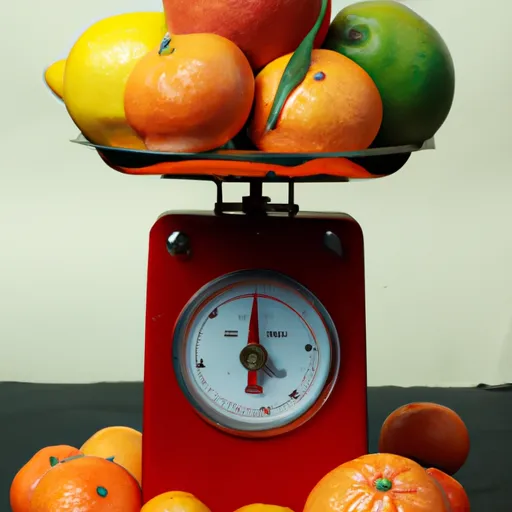
Despite its reputation for being a health-boosting snack, this tasty treat is not all it’s cracked up to be. Don’t be fooled by fruit’s nutritious aura – hidden among the vitamins and antioxidants there lies an abundance of sugar! Take that orange or grape: sweet enough? Probably so!
Eating a variety of low-sugar whole fruits is the way to go for anyone looking to improve their health. These tasty treats contain soluble fibre that helps you feel fuller and longer.
Even better news – up to 30% of the sugars found in fruit may not be absorbed at all! So why not indulge your sweet tooth with some fresh berries? Delicious and nutritious!
No doubt, fruit is packed with healthy nutrients – but if you’re having more than five servings per day, be aware that it could equate to a whopping 52 grams of sugar.
That’s the equivalent amount as in 16 ounces of soda! So when choosing your daily snacks and treats, just bear this sugary truth in mind.
Isn’t fruit natural?
Fruits have come a long way since their humble, wild beginnings! We may take for granted the bountiful basket of plump and juicy fruits we find in our grocery stores today, but these offerings are nothing like their predecessors.
Thanks to years of careful cultivation from curious growers around the world, modern domestic fruit is larger than ever before with thinner skin and smaller pips – making them much more delicious (and sweet!) treats.
8. NO Beer
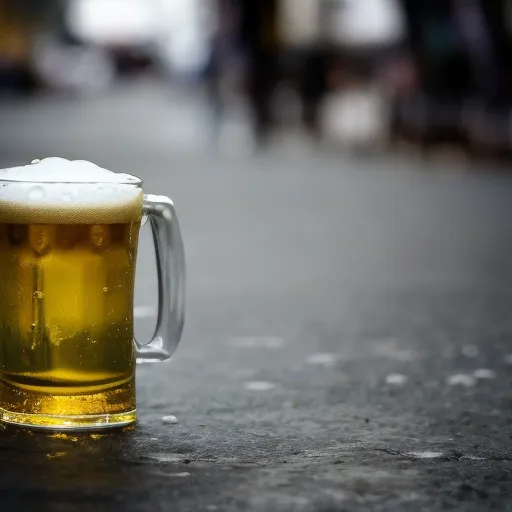
Beer contains rapidly digested carbs that shut down fat burning. Beer may be known as “liquid bread” for its ability to nourish and fill the belly! That’s why it has gained the distinguished moniker of ‘beer belly’.
Here are smarter (lower-carb) alcoholic options when trying to lose weight:
- Wine (red or dry white)
- Dry champagne
- Hard liquor like whisky, cognac, and vodka (avoid sweetened cocktails)
Enjoy a few drinks without guilt – these delectable beverages have barely any sugars, so they’re better for you than beer! Just keep an eye on those alcohol levels; too much and you’ll be taking your weight loss journey in reverse. Moderation is the key to success here darling!
9. Step away from the non-caloric sweeteners and opt instead for a healthier alternative – your body will thank you!

Replacing sugar with non-caloric sweeteners may sound like a sensible way to cut calories and lose weight.
Unfortunately, research has shown that making the switch won’t necessarily produce results – it’s still important to keep an eye on your overall diet.
10. Take a moment to review the medications you may need.

Working towards a healthier you can be tough, especially when faced with the possible foils of prescription drugs that may impede your progress.
Taking it upon yourself to have an open conversation with your doctor is key- they’ll need all of the facts in order for them to identify if any medication changes should take place.
Three culprits are commonly known for causing weight loss stalls including…
- Insulin injections. Taking control of your dietary intake can reduce the amount of insulin needed and help unlock success along your journey to a healthier lifestyle! Remember to work closely with your healthcare provider to ensure you safely lower your doses. If this isn’t enough, treatment with metformin (an insulin-sensitizing drug) can decrease the need for insulin (at least for people with type 2 diabetes).
- Other diabetes medications, like drugs that stimulate the secretion of insulin by the pancreas (e.g. sulfonylureas), often lead to weight gain. These include Amaryl (glimepiride), Glucotrol/Minodiab (glipizide), Euglucon (glibenclamide), and Daonil (glyburide). Additional diabetes medications like Actos (pioglitazone), Starlix (nateglinide) and Prandin/NovoNorm (repaglinide) also encourage weight gain.
- Cortisone and other glucocorticoids (e.g. prednisone, prednisolone, dexamethasone) are also common offenders. These drugs may cause weight gain in the long run, especially at higher doses (e.g. more than 5 mg prednisolone per day). Unfortunately, a medication like cortisone is often essential for those who have been prescribed it.
These other medications can also cause problems with weight loss:
- Neuroleptics/antipsychotic drugs
- Some antidepressant medications
- Some contraceptives
- Blood pressure medication
- Epilepsy drugs
- Allergy medications
- Antibiotics
11. Sleep is the key to stress-free living!

We all know the struggle of wanting an extra hour or two in bed and a less stressful life, but did you realize this could be causing your weight to fluctuate?
Cortisol levels can skyrocket when stress mounts up and sleep hours decrease – leading us down that oh-so-familiar path towards overeating.
So next time it feels like the world’s against you, take some deep breaths and catch that valuable zzzs!
One way to combat this is to go to bed early enough for your body to wake up autonomously before the alarm clock goes off. Letting yourself get a good night’s sleep is another way of reducing stress hormone levels.
Sleep deprivation, on the other hand, goes hand in hand with sugar cravings.
Could life be making you bulky? Weight loss isn’t always as simple as counting calories – it can also involve reducing your stress!
Think about ways that could help you chill out, and don’t forget the importance of restful sleep.
Make sure to give yourself enough time until your natural body clock wakes up rather than relying on an alarm clock so rudely waking you each morning – because getting adequate shut-eye is essential for keeping trim.
12. Let’s explore lighter but still delicious alternatives to dairy and nuts for our meals!

Wondering if you can power through meals and still stay on track with weight loss?
Saying ‘No’ to low-carb diets isn’t the answer. With a higher satiety diet, appetite regulation means far better results – so yes, it is possible!
Just be aware that some lower-carb foods might not always have enough staying power for larger portions: in which case shift towards dishes proven to satisfy hunger cravings more easily.
Bon appetit!
As we all know, fat is twice as caloric as carbs or protein.
Unfortunately, high-fat dairy products contain lots of calories from their fatty content and the much-loved lactose (milk sugar).
In order to cut back on weight loss stalling foods like butter – it’s best not to overindulge in them if you want a jump start towards shedding those unwanted pounds!
13. Fuel your body with essential vitamins and minerals for optimal health.

Eating healthily and with a balance is of utmost importance for our bodies to stay in tip-top shape. But what happens when we don’t get the essential vitamins or minerals we need?
It’s possible that your body will send signals, like increased hunger levels, prompting us to eat more so as not to miss out on those important nutrients. Although this isn’t definitive yet according to research it looks promising! So let’s fill up our plates with all things nutritious – every tummy deserves a treat once in a while too – no naughtiness here!
Vitamin D
Have you ever considered that the reason why we struggle to maintain a healthy weight in northern countries like the UK, Canada and much of the US is that many people are lacking adequate vitamin D?
While research on whether or not taking additional Vitamin D could actually help us slim down remains inconclusive, there have been studies suggesting it can reduce our fat mass even if no overall loss in body weight has occurred.
In a study of 77 overweight or obese women, those who supplemented with 1000 units of vitamin D daily for 3 months saw remarkable results – on average they lost 2.7 kg (6 pounds), which was significantly more than the placebo group’s mere 0.4kg (less than one pound)!
So if you’re looking to trim down and tone up in no time at all, make sure your diet includes this essential nutrient!
Multivitamins
While there’s no definitive answer on the efficacy of vitamin and mineral supplementation for weight loss, a 2010 clinical trial went some way to establishing an informed opinion.
One hundred women with weight issues were split into three groups – one given multivitamin supplements daily, another calcium supplements and finally a placebo.
All waiting to see if any beneficial effect was had upon their waistlines!
The study went on for six months.
Despite the fact that taking calcium or a placebo showed no change in weight, those who took multivitamins experienced amazing results – with an average of 3.6kg (8lbs) loss!
Not to mention their basal metabolic rate increased for optimal health benefits. Deliciously nutritious indeed!
14. Give intermittent fasting a try for an energized and invigorated you!

Intermittent fasting may just be the thing you need to break through a weight loss plateau – or turbocharge your progress.
It’s worth considering if all else is going right, so don’t let this tip #14 prevent you from exploring its potential benefits!
After all, intermittent fasting simply involves abstaining from food during certain intervals; give it a go and see what comes of it!
Recommended first option – 16:8
Fasting has become a popular way to maintain balance, and trading breakfast for coffee is one of the easiest ways to do this.
Try a 16-hour fast that runs from 8 pm until 12 noon – it can be done while following either high-satiety or low-carb diets!
Or consider skipping dinner; if you eat your meals between 8 am and 2 pm then don’t feel guilty about missing out on dinner.
If you’re looking to make a change in your lifestyle that doesn’t involve counting calories and feels doable, look no further than the 16:8 method of intermittent fasting.
This approach allows for sixteen hours without eating with an eight-hour window within which food can be consumed – it’s easy enough to do multiple days per week or even daily on low-carb/keto diets!
So why not give this strategy a try?
Although it’s possible that doing it more frequently may improve your results, long-term studies are lacking.
Although there’s no definite answer yet on whether frequent fasting will reduce resting metabolic rate as the continuous caloric restriction does, it may be wise to focus your efforts elsewhere if you find yourself prone to overeating during the eating window.
Refining higher satiety meals can help quell hunger and diminish cravings when meal time comes around!
Other kinds of intermittent fasting
From overnight oats to a 4-week plan, there’s an abundance of choices when it comes to achieving your health goals.
If you fancy something more prolonged – and perhaps challenging – why not try extending the amount of time?
With two popular options available, that could be just what’s needed for success!
- Fasting for 24 hours (often dinner to dinner) once or twice a week. This can be effective and easy to do for some people, especially on a keto diet, which usually reduces appetite.
- The 5:2 diet. Eat as much as you need to feel satisfied 5 days a week and then eat calorie-restricted for two days (500 calories per day for women, 600 calories for men). It may take a bit more effort to achieve, but many still find counting calories an enjoyable experience.
What about eating when hungry?
Doesn’t advice on intermittent fasting contradict the advice to eat when hungry? Yes, it does, somewhat.
Don’t forget that it’s not about a restrictive diet – intermittent fasting is simply an option to be part of your own effective tool kit.
Make sure you still take pleasure in meals, eating until satisfaction and allowing your body the necessary rest from continuous feeding!
Let us remember – no deprivation is needed here; just listen carefully to what your body needs so you can enjoy delicious food while maintaining balance over time.
What’s acceptable to drink during fasts?
During a fast, you can’t eat, but you should definitely drink. Water is the drink of choice, but coffee and tea are also great options. During longer fasts, it can be wise to add some salt too, or drink bouillon.
Anything you drink should ideally be zero calories. But it may be acceptable to modify this by adding a small amount of milk or cream to your coffee or tea – if you absolutely need it to enjoy your drink.
What to eat between fasts
If you’re looking to reach your weight loss goals, try combining a low-carb or higher-satiety diet with intermittent fasting.
Science shows us that not only does this approach make the fasts easier and more effective but it can also help switch on fat-burning mode quicker than other methods – for an extra boost of results! 1+1 really DOES equal 3 in this case.
Who should not do intermittent fasting
Intermittent fasting can be a great idea, but not everyone should do it:
- With any dietary changes, it’s always best to seek guidance from a medical professional. If you’ve previously struggled with issues around your relationship with food, then please consider consulting your doctor before attempting intermittent fasting. After all, health should be our top priority!
- If you’re feeling under strain or not getting enough shut-eye, then nurture yourself first. Don’t put your body through an additional challenge like fasting unless it’s already in a good place. Follow my tip #11 for reaching peak relaxation and well-being!
- Prior to embarking on a fasting lifestyle, it’s important that you check with your doctor if you are taking any medications – especially insulin. Your dosages may require adjustment while abstaining from food and drinks during specific periods of time.
- Growing children, pregnant and nursing mamas – you have special nutritional needs! Listen to your body; eat when hunger beckons. If further weight loss is desirable then try the other tips in this guide too!
15. Whether you’re training for a marathon or just looking to stay fit, exercise wisely and reap the many health benefits it brings!

Exercise is often touted as the most important action towards achieving weight loss. However, have you ever stopped to consider why this is only number 15 on the list?
I’m here to reveal a fact that may surprise you: exercise alone is greatly overrated when it comes to shedding those excess pounds!
Just taking the stairs instead of the elevator, or getting off the bus one stop earlier, is probably not going to change the numbers on your bathroom scale.
It’s a myth.
Studies show that if you just start exercising, you’re likely going to need at least 30-60 minutes of workouts per day to noticeably lose weight.
Exercise can still be beneficial to our health and well-being even if it doesn’t result in weight loss!
While we may get a bit hungrier after exercising, there are many positive benefits that exercise provides – learn more about them today with our guide.
So let’s swap Netflix for some squats and feel the satisfying effects of exercise!
Eating processed food and consuming sugary beverages may seem like an easy choice. However, it takes far more than hours spent exercising to undo the damaging effects on our bodies. Especially when there are healthier options available!
Metaphorically that’s like digging a hole, into which you put your ladder, on which you stand and paint the basement-level windows of your house.
Exercise cannot compensate for other behaviours or issues in your life. Those must be addressed first.
The good news
If you’ve already taken the necessary steps to look after yourself, your body will be feeling great and ready to get burned on those fat cells.
Adding further activity can amplify weight loss results as well as reduce insulin levels. So why not pick up that sports class or go for a run?
It’s time to turbocharge towards achieving optimal health!
Also, don’t forget that the non-weight-related health effects of exercise are quite impressive.
Boost your body composition with exercise forms that can stimulate a positive hormonal response – think lifting heavy weights or doing intervals.
It’s not just the physical benefits you will get; such exercises also increase levels of testosterone in men and growth hormones for everyone!
Exercise is not just a great way to get in shape – with increased hormone levels, it can also help you build muscle and reduce belly fat over time.
Feel good AND look your best?
That’s an unbeatable combination! So why don’t you take the opportunity to find something that works for YOU today?
16. Tantalize your tastebuds and boost to higher ketone levels for a more nutritious day!

If you’re still not seeing any results from the 15 top tips, here’s a controversial suggestion to get your ketogenic diet buzzing: boost those delicious little molecules known as ‘ketones’.
Looks like we’ve got an extra surprise up our sleeve!
Why is it controversial? For most people, “low” or “higher” ketone levels don’t make a difference in health and weight loss, and in general, we do not recommend shooting for a specific ketone level.
If you’ve been stuck at a weight loss plateau while on low-carb diets, don’t despair! Raising ketone levels may be the key to getting past it.
A quick explanation: eating fewer carbs lowers your insulin’s fat-storing ability – essentially unlocking energy that was stored in your fat deposits so they can shrink and won’t stand in the way of progress anymore!
Eating fewer calories than you expend is an important part of losing weight, and there are a few simple tricks to help fine-tune your diet for the best results.
With just a little creative thinking from my kitchen, I know that achieving those goals without hunger will be easy!
Ketosis
Deliciously satisfying low-carb diets don’t have to be limiting – if you enter a state of ketosis, your body is able to run on fat as fuel which will help you lose weight!
In this metabolic process, the liver converts stored fats into energy molecules called ketone bodies.
If insulin levels are lowered (through diet or exercise), then the production and absorption of these precious fuel sources rise exponentially. This gives us that extra boost our brain needs for an optimal healthy lifestyle!
Measuring ketones
With just a single needle prick of the finger, today’s amazing gadgets provide you with an effortless way to check your blood ketone level in mere seconds.
Get ready to revolutionize how easily and affordably you can monitor your health!
Here are a few pointers on how to interpret blood ketone results:
- With ketosis, the aim is generally to reach 0.5mmol/L or higher for maximum fat-burning – but not all experts agree on this cut-off point. Some studies suggest that even at lower levels of 0.3 mmol/L providing you’re following a strict keto diet there can still be benefits in terms of weight loss and health improvements; it’s just important to make sure your macros are spot on!
- If your body falls between 0.5 – 3 mmol/L, you’re in the sweet spot of nutritional ketosis! This range is ideal for weight loss and better metabolic health; a little higher or lower won’t make too much difference either way.
- If you’re looking to treat neurological or mental health issues with a ketogenic diet, then you may want your nutritional ketosis levels around the 1.5 – 3 mmol/L mark – though scientific evidence is lacking for this point. Always consult an expert before altering any medical treatments. After all, when it comes to our well-being, nothing should be taken lightly!
- No need for numbers to reach above 3 mmol/L – level 0.5-3 is sufficient! Going higher could mean you’re not taking in enough nourishment, and if you have type 1 diabetes your body might be lagging on the insulin front (definitely something to keep an eye out for!).
Ketones in urine
Are you concerned about your ketone levels? Don’t feel like forking out for a pricey measuring device, or need to test frequently and don’t have health insurance coverage?
In that case, old-fashioned urine test sticks could be just the ticket – they might not give quite as reliable results but they fit much more comfortably into most budgets.
Breath ketone meters
If you’re interested in tracking your ketone levels, a breath meter may be the perfect solution!
Not only does it give an easy-to-read range of mild, moderate and high measurements to determine how deep into ketosis you are (which can be oh-so rewarding!), but with no need for recurring expenses like test strips – think about all those pennies saved over time.
Just make sure that after considering initial costs, your wallet stays just as happy as you do while reaching health goals galore.
How to achieve higher ketone levels
Many who firmly believe they are eating a strict low-carb diet are surprised when they measure their blood ketones. They may be at around only 0.2 or 0.4. Why?
First, you should make sure you are avoiding all obvious sources of carbohydrates (sweets, bread, spaghetti, rice, potatoes). Next, check for “hidden carbs” in salad dressings, dips, and from other sources like alcohol.
In an effort to improve fat-burning, thereby increasing ketone levels, you may consider adding intermittent fasting or exercise to your routine (see tips #14 and #15 above).
Finally, make sure you are eating adequate amounts of protein. A keto diet for weight loss should be at least a moderate protein diet.
A word of warning about weight loss
For those living with type 1 diabetes, ketones may be a complicated topic.
Although it’s true that rising levels can lead to dangerous conditions, in some cases people naturally slip into nutritional ketosis for the same reasons as their non-diabetic counterparts on restrictive diet plans – so long as blood sugar is regulated and insulin intake monitored.
It’s not worth it to overly focus on controlling one’s weight by raising blood ketone levels when you have type 1 diabetes.
This can actually lead to the potentially fatal condition of ketoacidosis, which must be addressed with urgency or else serious health risks could ensue!
If you feel that your sugar and/or ketones are abnormally high, contact a healthcare provider right away. Nothing is more important than taking care of yourself in this case.
17. Looking after your health is a top priority. What better way to do that than getting a check-up of those vital hormones?

Despite your best efforts – diet tweaks and lifestyle adjustments, supplement additions and ketone experimentation galore – you’re still finding yourself far from the desired weight? Don’t fret my friend. There are more paths to success than one!
If you’re feeling out of the ordinary, it may be time to explore whether hormones play a role. Three key areas can hint if this is responsible – investigate further and take control of your well-being!
- Thyroid hormone
- Sex hormones
- Stress hormones
Thyroid hormone
While it sometimes flies under the radar, a lack of thyroid hormones can cause an unwelcome dip in metabolism – something that often affects women most significantly.
With these changes to our bodies and energy levels, we can feel powerless against them but there are steps you can take to gain back control!
Common symptoms of hypothyroidism are:
- Fatigue
- Cold intolerance
- Constipation
- Dry skin
- Weight gain
In these cases, weight gain resulting from decreased metabolism usually does not exceed 15 pounds.
Your doctor can easily arrange for you to take a blood test to measure the concentration of thyroid-stimulating hormone (TSH).
If the test comes back and everything looks good, your thyroid gland is probably fine.
Sex hormones
Sex hormones also affect your weight:
Women: For many women, the endocrine disorder PCOS – polycystic ovarian syndrome – can cause a steady surge in testosterone and insulin levels.
This unwelcome shift may manifest in weight gain or menstrual irregularities (both very common), acne breakouts, difficulty conceiving, as well as increased facial hair growth along masculine patterns.
Men: As we age, declining testosterone levels are totally normal. Unfortunately for some of us though, this decrease can be more drastic. Consequently, it can lead to unwanted weight gain and reduced muscle mass.
Thankfully with a little effort, there are things you can do to nip it in the bud; think smart exercise regimes combined with boosting your vitamin D!
Both men and women should take into account, however, that supplementation of testosterone or estrogen for years on end can come with potential side effects.
It may be wise to accept that you don’t (and shouldn’t!) have the body of a 20-year-old when you’re at least twice that age.
A better option might be to focus on a healthy lifestyle instead. Be as happy and grateful as you can for the body you have.
Stress hormones
When it comes to difficult-to-shift pounds around our middles, cortisol – the main stress hormone – could be key.
If we’re revving too high on this hormone and not getting enough shut-eye (see Tip #11), then increased hunger pangs plus weight gain will become a worrying reality.
Note: certain cortisone medications can also lead to elevated levels of cortisol within our bodies (check out Tip #10).
18. If you are looking for a way to kickstart your weight-loss journey, why not consider the potential benefits of medication? With careful monitoring and doctor consultation, there may be an option out there that can help give you that extra boost!

Losing weight can seem like a dream, but often the reality of diets and laborious exercise don’t always hit the mark. That’s why it’s no surprise that millions are attracted to medicines which promise effortless slimming – with just one pill-a-day!
But do they really work? Well…somewhat, though their effectiveness might be more limited than you’d imagine.
And these pills also come attached with some potential side effects too – making taking them far from risk-free…
While there are drugs that can contribute to modest weight loss, they don’t always come without bothersome side effects.
The good news is that more advanced medications have been developed in recent years and promise up to 10 or even 15% body weight loss – provided you continue taking the drug indefinitely!
That’s right – if you stop the drug, you will likely regain the weight you lost, plus extra if your weight was already on an upward trajectory before starting the drug. Prescription-free supplements
The internet is full of claims of magic supplements that can make you thin. Unfortunately, the only thing they’ll make thin is your wallet.
Carb Blockers
For those looking for a carb-free diet, prescription-free “carb blockers” may sound like the perfect solution. However, despite their reputation in studies funded by companies selling them. These blocks have only achieved minimal impact on weight and body composition.
It’s definitely more effective to not eat the carbs in the first place (it’s also free).
Older appetite suppressants
In the United States, it’s possible to use amphetamine-like appetite suppression – legally! Despite being FDA-approved for use that lasts no longer than twelve weeks there are still options available.
Whether you’re looking into phentermine or liraglutide. These drugs aren’t approved by EU regulations so take care if travelling across continents with them.
- Phentermine
- Phendimetrazine
- Benzphetamine
Combination therapy
Qsymia combines a small dose of phentermine (see “Older appetite suppressants,” above) with a small dose of topiramate, an old anti-seizure drug.
This is available in the US, but it got rejected in Europe (where the risks were judged worse than the benefits).
Be careful
While there may be promise in some weight loss drugs, they cannot guarantee that you will miraculously become slim overnight.
Most have the potential to bring with them uncomfortable side effects and their effectiveness is minimal at best – so success should not always be assumed!
Summary
In conclusion, it is clear that while there are many potential options when it comes to weight loss drugs, they cannot guarantee success and may come with side effects.
It is important to do your research before considering any medications or supplements for weight loss as some of these products can be dangerous if not taken correctly.
When looking into ways to lose weight healthily and safely, start by making small lifestyle changes such as eating healthier foods and exercising regularly.
These steps will help you achieve the body of your dreams in a safe and sustainable way!
What are your plans for losing weight during 2024? Leave a comment below!


